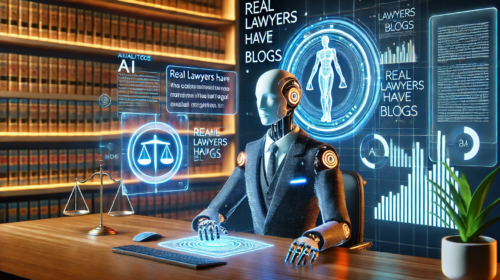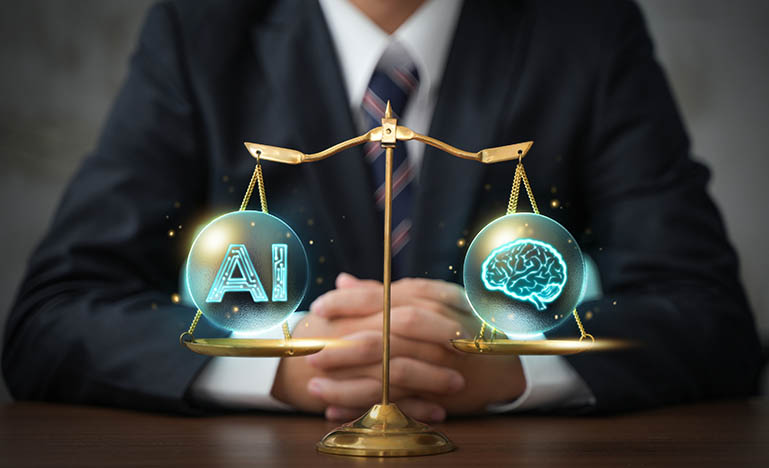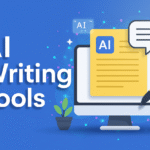Are you wondering if artificial intelligence is transforming the legal world for better or worse? You’re not alone.
The question of whether AI is good for lawyers is more than just a trending topic; it’s a crucial consideration for anyone in the legal field. Imagine having a tool that could handle tedious paperwork, predict case outcomes, and even enhance your decision-making process.
Sounds intriguing, right? But with all these promises, you might also feel a twinge of skepticism about what AI could mean for your career and client relationships. So, is AI a groundbreaking ally or a potential threat to your profession? Stick around as we dive deep into the possibilities and pitfalls AI brings to the legal table, helping you make an informed decision about its place in your practice.
AI in Legal Research
AI is transforming the legal industry in various ways. One significant area is legal research. Lawyers spend countless hours sifting through legal documents. AI can streamline this process, making it more efficient. It helps in finding relevant case laws quickly. The use of AI in legal research is becoming increasingly common. Let’s explore how AI benefits legal research for lawyers.
AI Enhances Research Speed
AI tools can scan thousands of documents in seconds. This reduces the time spent on research. Lawyers can focus more on strategic tasks. AI provides quick access to relevant information. It ensures lawyers are well-prepared for their cases.
Improved Accuracy With AI
AI minimizes human error in legal research. It analyzes data with precision. AI tools highlight pertinent information without bias. This leads to more accurate legal conclusions. Lawyers can rely on AI for dependable research outcomes.
Cost-effective Legal Solutions
AI reduces the cost of legal research. Fewer hours are spent on manual document review. This lowers client costs. It makes legal services more accessible. Cost-effective solutions benefit both lawyers and clients.
Comprehensive Data Analysis
AI provides a broad analysis of legal data. It identifies patterns and trends. Lawyers gain insights that were previously hard to find. This comprehensive analysis is invaluable in complex cases. AI adds depth to traditional legal research methods.
AI Aids In Predictive Analysis
AI predicts outcomes based on historical data. This helps lawyers anticipate case developments. Predictive analysis is useful in strategizing. It provides an edge in legal proceedings. Lawyers can plan better with AI insights.
AI-Powered Document Review: Transforming Legal Workflows for 2025
The legal industry’s reputation for meticulous, time-intensive document review is well-earned—yet, it’s precisely this area where artificial intelligence (AI) is having the biggest impact in 2025. AI document review software helps lawyers quickly analyze contracts, flag risks, ensure compliance, and summarize complex files. As a result, law firms and in-house legal teams are boosting efficiency, minimizing human error, and freeing up attorneys to focus on higher-value strategy and client service.
What Is the Role of AI in Legal Document Review?
At its core, AI’s main purpose in document review is to handle massive, complex data sets that are often impossible for humans to manage manually. Today’s best AI tools can:
Automate clause identification: Instantly highlight confidentiality agreements, governing law provisions, and dispute resolution clauses—even across thousands of pages.
Flag risks and anomalies: Spot unusual or risky terms, such as missing liability caps or compliance gaps, that could expose clients to danger.
Summarize contracts: Condense lengthy documents into concise, actionable overviews that make negotiation and review more manageable.
Ensure regulatory compliance: Compare contract language against standards like GDPR, ensuring every agreement meets evolving legal requirements.
Compare versions: Detect any changes made between document drafts to eliminate errors during negotiations.
How Does AI Improve Review Accuracy and Speed?
Lawyers rely on AI to reduce human oversight and systematic errors. These tools use machine learning and natural language processing—trained on vast legal datasets—to recognize legal terminology and context. The result? They can spot inconsistencies, potential omissions, and non-standard clauses that might be overlooked under pressure.
Because AI reviews documents at machine speed, what used to take days or weeks can now be completed in hours. This means deadlines are met faster, and lawyers have more time for strategic advisory and client meetings.
Real-World Example: Lawyers Using AI for M&A
Imagine a lawyer working through a high-value merger and acquisition deal. Traditional review would require reading and comparing thousands of pages. By deploying AI, the lawyer identifies problematic indemnity clauses and non-standard renewal terms in minutes. The tool provides redlines, suggested edits, and plain-language explanations, allowing the legal team to focus on negotiation, not paperwork. This empowers better client outcomes and a faster deal cycle.
Best Practices for AI-Enabled Document Review
- Treat AI as an associate, not a decision-maker. Human oversight remains essential to catch context nuances and make final calls.
- Use tools that provide transparent reasoning and reference standard playbooks for every contract review.
- Regularly train and update AI systems to reflect the latest regulations and legal standards.
- Document and audit every AI-assisted review to meet compliance and accountability requirements.
Current Challenges in AI Document Review
While AI’s value is clear, law firms face some hurdles:
- Over-reliance on automation can risk missing unusual situations that require experienced judgment.
- AI needs quality training data and must be tailored to each firm’s templates and risk profiles.
- Data privacy is crucial; all AI review should respect confidentiality and regulatory requirements.
The Path Forward: AI as a Legal Partner
AI is not replacing lawyers but is becoming an indispensable partner in legal workflows. By taking over repetitive, time-consuming review work, AI allows attorneys to focus on client counseling, crafting arguments, and shaping legal strategy. As technology continues to evolve, the firms that leverage AI for document review will enjoy improved accuracy, efficiency, and value delivery.
Are you ready to embrace AI in your practice? In 2025, AI-powered document review isn’t just a competitive edge—it’s quickly becoming the standard for legal professionals who want to deliver the best outcomes for their clients, faster and more reliably than ever before. Streamlining Document Review with AI: The 2025 Legal Game-Changer
The legal industry has always demanded precision, especially in document review—a process vital to every case but often tedious and time-consuming. In 2025, artificial intelligence (AI) is revolutionizing legal document review, making it faster, more accurate, and far more efficient. By automating repetitive review tasks and highlighting essential information, AI is enabling law professionals to focus where it matters most: strategy, legal analysis, and client relationships.
What Is the Role of AI in Document Review?
AI’s main value in document review lies in its power to process massive amounts of legal documents in record time. Advanced AI tools ingest, digitize, and analyze files in various formats—scanning for key clauses, extracting critical details (like parties, dates, or monetary terms), and flagging areas of concern. These tools use natural language processing and machine learning to identify complex legal terms or anomalies, making it possible to highlight risky clauses, summarize long contracts, and even check for compliance with regulations such as GDPR.
How Does AI Improve Accuracy?
The accuracy of legal document review is crucial, especially in high-stakes deals. AI is trained on enormous legal datasets and is built to recognize patterns, spot red flags, and minimize human error. Unlike manual review, where details can be overlooked due to fatigue or simple oversight, AI consistently detects inconsistencies, missing clauses, and other issues that might escape even a careful legal eye. This ensures every contract or legal document is thoroughly vetted, significantly reducing business risk.
Can AI Save Lawyers Time?
With AI, tasks that used to take dozens of hours—like cross-referencing agreement versions or summarizing large contracts—can now be accomplished in minutes. AI’s rapid processing means attorneys spend less time on paperwork and more time crafting negotiation strategies, preparing arguments, or advising clients. The result is a faster, more responsive legal practice capable of handling larger workloads with fewer resources.
Lawyers’ Real-Life Experience: M&A Made Efficient
Consider a merger and acquisition lawyer tasked with reviewing hundreds of contracts. Using AI, the lawyer pinpoints problematic indemnification clauses and uncovers hidden auto-renewal terms—within the first review pass. The AI suggests redlines and explains its reasoning, letting the attorney focus on negotiation and client strategy. This not only boosts efficiency but also enhances the thoroughness and quality of the review process.
The Challenges and Responsible Use of AI
While AI document review offers many benefits, lawyers shouldn’t become over-reliant. Human oversight remains essential—the final legal judgement calls and subtle context still demand human expertise. AI tools need high-quality, up-to-date training data and are most powerful when they work alongside seasoned attorneys, not as outright replacements. Data privacy and confidentiality are also paramount, so law firms must ensure AI tools are secure and compliant with all regulations.
Enhanced Contract Analysis
Enhanced Contract Analysis is transforming how lawyers manage contracts. AI technology is streamlining this process, making it faster and more accurate. Lawyers can now focus on complex legal tasks, leaving routine contract analysis to AI. This shift is making legal work more efficient and less error-prone. AI is helping lawyers understand contracts better and faster.
Understanding Complex Clauses
AI software can quickly analyze contract clauses. It identifies key terms and conditions. This saves time and reduces human error. Lawyers gain insights from AI’s precise analysis. They understand complex clauses without spending hours on them.
Reducing Human Errors
AI tools minimize mistakes in contract analysis. They highlight inconsistencies and omissions. Lawyers can correct errors before they cause problems. This accuracy boosts client confidence. It ensures contracts are reliable and trustworthy.
Speeding Up The Review Process
AI accelerates contract review. It scans documents in seconds. Lawyers can review multiple contracts quickly. This speeds up legal proceedings. Clients benefit from faster service. Time saved can be used on strategic planning.
Improving Contract Management
AI enhances contract management systems. It organizes contracts and tracks changes. Lawyers can access updated documents easily. This improves workflow and productivity. Efficient management leads to better client outcomes.
Cost Efficiency
Using AI reduces costs in contract analysis. It lowers the need for manual labor. Lawyers can offer competitive pricing. This attracts more clients. Cost efficiency benefits both lawyers and their clients.

Credit: kevin.lexblog.com
Automated Legal Drafting
Automated legal drafting is changing the way lawyers work. It offers a faster way to draft legal documents. Traditionally, drafting legal documents took a lot of time. Lawyers had to write each document from scratch. This method was slow and prone to errors. Today, AI tools can draft documents in minutes. They use templates and data inputs to generate documents. This saves time and reduces errors. Lawyers can focus on more complex tasks. Let’s explore how automated legal drafting benefits the legal field.
What Is Automated Legal Drafting?
Automated legal drafting uses AI to create legal documents. These tools use algorithms and templates. They can draft contracts, wills, and agreements. Lawyers input specific data, and the AI generates a document. This method ensures consistency and accuracy. It is a simple way to handle routine tasks.
Benefits Of Automated Legal Drafting
One main benefit is saving time. Lawyers can draft documents quickly. This increases efficiency in law firms. Another benefit is reducing errors. Automated tools follow set rules. They ensure all legal terms are correct. This accuracy builds client trust.
Challenges Of Automated Legal Drafting
There are some challenges with automated drafting. AI tools might not handle complex cases well. They rely on predefined templates. This limits their flexibility. Also, lawyers need to review the AI’s work. They ensure the document meets all legal requirements.
The Future Of Legal Drafting
Automated drafting will continue to evolve. As AI improves, so will these tools. They will handle more complex tasks. This will change the role of lawyers. Lawyers will focus more on strategic tasks. Automated tools will handle routine drafting. This will make law practices more efficient.
Predictive Analytics In Law
Predictive analytics in law is transforming how legal professionals approach their cases. By analyzing past data, lawyers can anticipate outcomes and make informed decisions. This technology is reshaping the legal landscape, offering insights that were previously unattainable.
How Does Predictive Analytics Work?
Predictive analytics uses algorithms to analyze historical case data. It identifies patterns that can forecast the likely outcome of a case. Imagine knowing the chances of winning a case before stepping into the courtroom.
Benefits For Lawyers
Predictive analytics can save you time and resources. It helps prioritize cases with higher success rates. This means more efficient use of your time and better results for your clients.
Real-world Applications
Consider a lawyer handling contract disputes. Predictive analytics can highlight common issues in similar cases. This insight allows you to anticipate challenges and prepare stronger arguments.
Challenges And Considerations
Predictive analytics isn’t foolproof. It depends on the quality of data and the complexity of the case. You must weigh its predictions against other factors like human judgment and legal expertise.
Future Implications
As technology advances, predictive analytics will become more accurate. You might wonder if it will replace traditional legal methods. It’s more likely to act as a powerful tool, enhancing your capabilities rather than replacing them.
Could predictive analytics change the way you approach your legal practice? Consider the potential impact and how it could streamline your work. Are you ready to embrace this innovative approach to law? The future of legal practice is evolving, and predictive analytics might be the key to staying ahead.

Credit: www.nationalmagazine.ca
Ai-powered Client Interaction
AI-powered client interaction is changing how lawyers communicate. AI tools help lawyers manage client relationships with ease. These tools provide quick responses and streamline communication. Lawyers can now focus more on complex tasks. The integration of AI in client interaction can lead to better client satisfaction. Clients receive timely updates and answers to their queries. This can boost trust and loyalty in legal services.
Ai Chatbots For Client Queries
AI chatbots handle routine client questions efficiently. They operate 24/7, offering instant responses. This reduces the waiting time for clients. Lawyers can use chatbots to answer simple legal questions. This allows lawyers to dedicate time to more complex cases. Chatbots also gather client information beforehand. Lawyers receive this data, ready to address deeper client needs.
Virtual Assistants For Scheduling
AI virtual assistants help manage appointments seamlessly. Clients can book meetings without direct human interaction. This ensures a smooth scheduling process. Lawyers receive notifications of upcoming meetings. This reduces the chances of missed appointments. Virtual assistants can also send reminders to clients. This keeps both parties organized and on track.
Ai In Client Data Management
AI tools assist in managing client data effectively. They organize and store client information securely. Lawyers can retrieve data quickly when needed. This improves the efficiency of legal services. Data is also analyzed for insights into client needs. Lawyers can tailor their services to better meet these needs.
Personalized Client Communication
AI enables personalized communication with clients. Tools analyze client interactions to offer tailored responses. Clients feel valued and understood. This personalization strengthens the lawyer-client relationship. AI helps in identifying the preferred communication style of clients. Lawyers can adjust their approach accordingly.
Ethical Considerations
Artificial Intelligence (AI) is transforming the legal profession. Yet, it raises ethical concerns. Lawyers must weigh AI’s impact on their practice. This section explores key ethical considerations for lawyers using AI.
Data Privacy
AI systems process large amounts of data. Lawyers must ensure client data remains confidential. Breaches can damage trust and violate ethical rules.
Bias And Fairness
AI algorithms can be biased. Lawyers must scrutinize AI tools for fairness. They should ensure decisions are impartial and just.
Competence And Responsibility
Lawyers using AI must remain competent. They should understand AI’s capabilities and limitations. Responsibility for outcomes cannot be delegated to AI.
Transparency And Accountability
Transparency is crucial in AI usage. Lawyers should explain AI’s role in legal decisions. Accountability must remain with the human legal professional.
Impact On Employment
AI could affect legal job roles. Lawyers need to consider its impact on employment. Ethical use involves balancing efficiency with job security.

Credit: www.lexisnexis.com
Challenges And Limitations
AI offers exciting possibilities for lawyers but also presents hurdles. Training AI systems demands time and accurate data. Privacy concerns arise, as sensitive information needs protection. These challenges need addressing for AI to truly benefit the legal field.
Artificial Intelligence (AI) is steadily making its way into the legal industry, offering several benefits. However, it also presents challenges and limitations that lawyers need to consider. Understanding these hurdles is crucial for effectively leveraging AI tools in legal practice. ###
Data Privacy Concerns
AI systems often require access to sensitive client information to function optimally. This raises significant concerns about data privacy and confidentiality. As a lawyer, you must ensure that any AI tool you use complies with data protection laws. ###
Accuracy And Reliability
While AI can handle repetitive tasks efficiently, it isn’t infallible. Errors in AI algorithms could lead to inaccurate legal advice or document preparation. You need to double-check AI-generated outputs to maintain the integrity of your legal services. ###
Lack Of Human Judgment
AI lacks the nuanced understanding and empathy that human lawyers bring to the table. Complex cases often require a human touch to interpret laws and regulations. Relying solely on AI might lead to missing crucial subtleties in legal arguments. ###
High Implementation Costs
Integrating AI into a law practice can be expensive. Costs include software purchase, training, and ongoing maintenance. Small firms may find it challenging to justify these expenses against their budgets. ###
Resistance To Change
Many lawyers are accustomed to traditional methods and may be resistant to adopting new technologies. Overcoming this resistance requires demonstrating the tangible benefits AI can offer. How open are you and your colleagues to embracing AI in your practice? ### AI in law raises ethical questions, such as the potential for bias in AI algorithms. It’s essential to scrutinize AI tools for fairness and impartiality. Are the AI solutions you are considering free from biases that could affect your clients? ###
Dependence On Technology
An over-reliance on AI could make your practice vulnerable to technical failures. It’s crucial to have contingency plans in place to handle any AI system downtime. How prepared are you to deal with such disruptions in your legal operations? Understanding these challenges and limitations helps you make informed decisions about integrating AI into your legal practice. Balancing technology with human expertise ensures you provide the best possible service to your clients.
Future Of AI in Legal Practice
The future of AI in legal practice holds immense potential. AI can transform how lawyers work. With AI, tasks can be faster and more efficient. Yet, it also brings challenges and opportunities. Understanding these will shape the future of law.
What AI Means For Legal Research
AI can analyze large volumes of legal texts quickly. This makes research faster and more accurate. Lawyers can find relevant cases and statutes in seconds. AI tools can predict legal outcomes based on past cases. This provides valuable insights for building strategies.
AI and Contract Review
Reviewing contracts can be tedious and time-consuming. AI can automate this process. It detects errors and suggests improvements. This saves time and reduces human error. Lawyers can focus on complex tasks that need human judgment.
The Role Of AI in Client Interaction
AI chatbots can handle routine client queries. They provide immediate responses, improving client satisfaction. Lawyers can use AI to analyze client data. This helps in understanding client needs better. Personalized services can be offered based on insights gathered.
Ethical Considerations With AI in Law
AI raises questions about ethics in legal practice. Concerns about privacy and data security are paramount. Lawyers must ensure AI tools comply with legal standards. Transparency in AI decision-making is crucial. Clients need to trust AI-driven processes.
AI’s Impact On Legal Jobs
AI might change the job landscape for lawyers. Routine tasks may require fewer human resources. Yet, new roles focusing on AI management will emerge. Lawyers will need to adapt to these changes. Embracing AI skills will be important for future success.
Frequently Asked Questions
How Can AI Assist Lawyers In Their Work?
AI can streamline legal research, automate document review, and provide predictive analytics. It helps lawyers save time by analyzing large volumes of data quickly and accurately. Furthermore, AI tools can enhance decision-making by offering insights and identifying relevant precedents.
Is AI Reliable For Legal Document Drafting?
AI is highly reliable for drafting legal documents. It ensures consistency, reduces errors, and speeds up the drafting process. With machine learning capabilities, AI can adapt and improve its accuracy over time. Lawyers can rely on AI for standardized documents, freeing up time for strategic tasks.
Will Ai Replace Lawyers In The Future?
AI will not replace lawyers but augment their capabilities. It handles repetitive tasks efficiently, allowing lawyers to focus on complex legal issues. Human judgment and empathy remain irreplaceable. AI serves as a tool to enhance productivity, not as a replacement for human expertise.
Can AI Improve Legal Research Efficiency?
Yes, AI significantly improves legal research efficiency. It quickly sifts through vast databases, identifying relevant cases and statutes. This reduces the time lawyers spend on manual searches. AI-powered research tools ensure comprehensive coverage, providing lawyers with critical insights promptly and accurately.
Conclusion
AI offers valuable tools for lawyers. It can streamline legal research. Save time on routine tasks. Improve document review efficiency. Enhance client communication with chatbots. But it’s not a replacement for human judgment. Lawyers still make crucial decisions. AI supports, but doesn’t lead.
Privacy and ethical concerns need attention. Balance technology with human expertise. AI can be an ally, not a substitute. Consider its role carefully. Use it wisely in legal practice. The future of law may include AI, but human touch remains essential.




